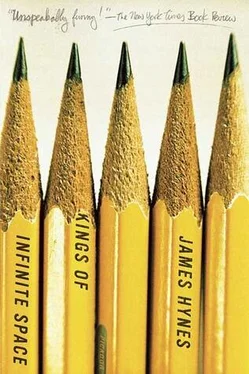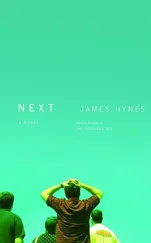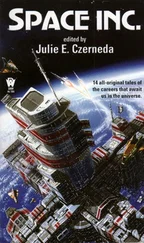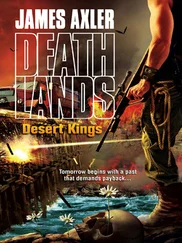Paul broke away and crossed to the table behind him, and the man crossed with him, appearing on Paul’s right, moving ahead of him at a constant rate. Paul got a good look at the pale, creased skin at the back of the man’s neck; he smelled disinfectant and the faint tang of excrement. Who are these guys? Paul wondered. He kept his eyes on the massed spines before him. He stopped and the other man stopped; he plucked a volume at random out of the box before him — a water-stained paperback of Worlds in Collision —and the man next to him did the same. With the paperback in his hand, Paul arched his back and stretched his arms and feigned a yawn, glancing around the room to see how far he was from the door. As he lowered his arms he saw Boy G himself peering through his glasses at him from two tables away.
Paul’s pulse began to pound, and his breath came short. Boy G looked the same as he had a few days ago, down to the crumpled name tag. He stared expressionlessly across the intervening tables at Paul, and for an instant Paul thought that the egg-shaped man hadn’t seen him. But then Boy G smiled, and Paul caught his breath. Even across the room Paul could see that there was something odd about the homeless man’s teeth. They weren’t even, but they weren’t discolored or gapped like an ordinary homeless person’s. Rather, they were dazzlingly bright and serrated like a saw blade, a jagged row of sharp points.
Paul gasped and stepped back from the table, brushing the homeless guy who had been shadowing him. Paul recoiled from the man, and the man smiled at Paul, revealing his own glossy, jagged teeth, each tooth filed down to a sharp point like a New Guinea tribesman’s. Both men were smiling ferociously at Paul now, while all around them the other customers shuffled obliviously, their heads lowered, their shoulders hunched, their eyes cast down. Paul felt a scream rising from his solar plexus.
“Alright!” someone shouted, and every eye in the place flickered towards the sound. The kid in the Luckenbach t-shirt was flapping an old LP in the air while the girl in the funky glasses smiled up at him.
“Check it out!” cried the kid. “The Strawbs!”
Even the homeless guy next to Paul had turned to watch the commotion. Paul edged away from him, step by step, and then hustled up the aisle. He didn’t dare glance back at Boy G, but made a beeline for the door. He swerved around the card table at the entrance, and the old gent manning the cash box reached out and clutched Paul by the wrist. His touch was electric to Paul, and he tried to break away, but the old man held him tight.
“That’s fifty cents, son,” said the old man.
Paul’s rising scream nearly broke loose. He could feel Boy G’s jagged teeth nipping at his shoulders and the back of his neck. The old man tightened his grip, and Paul expected to see him bare his own serrated teeth. But the cashier smiled, and his teeth were even and ordinary and yellowed by nicotine. He gestured with his eyes at the book in Paul’s white-knuckled grip, the battered old copy of Worlds in Collision . Paul released it instantly; the book flopped to the floor. The old man released Paul’s wrist, and Paul bolted through the door without looking back and took the steps to the library’s main floor two at a time. At the top of the stairs, brilliant Texas sunlight poured through the library’s tall front windows. Paul whirled and looked back and saw no pale homeless men coming after him, only a little black girl clutching a copy of A Spelunker’s Guide to Texas .
Paul groaned and sat heavily on the top step, alarming the little girl. He stayed there until his heart stopped pounding and his knees stopped trembling. Then he rose and trotted back down the stairs into the meeting room. But all he saw was the sale’s regular clientele, slowly grazing. Boy G and his sidekick were gone. Paul stepped into the hall and glanced up the stairs to the main floor, then down the basement hallway towards a locked door labeled NO UNAUTHORIZED ACCESS. He stepped inside the meeting room and tapped the shoulder of the old fellow at the cash box.
“You dropped your book,” said the old man.
“Is there another way out of here?” Paul murmured.
The old man cocked an eye at Paul. “Somebody after you, chief?” he said.
“Forget it,” Paul said, and walked away.
AFTER PAUL FINISHED HIS LAUNDRY SATURDAY MORNING, he had left the trousers and the shirt he planned to wear that evening on a hanger in his car beyond the reach of Charlotte. When it was time to get ready for his date, he even considered changing in the car but decided he didn’t want to wriggle into his trousers under the eyes of the Snopeses loitering in their doorways. So he retrieved the hanger and hung it behind the bathroom door while he showered, where he could keep an eye on it — even ghost cats don’t like water, he had learned — then waited until the last moment before he pulled on the trousers and buttoned his shirt. Then he grabbed his wallet and his keys, stubbed his feet into his sandals, and bolted for the door. He glimpsed Charlotte sprawled across the back of the sofa, and he muttered, “Don’t wait up,” as he pulled the door shut.
Callie lived in a twenty-year-old apartment complex along one of the down-market reaches of South Austin Avenue; its driveway climbed a short hill between a massage parlor with curtained windows and a head shop emblazoned with a sunbleached mural of Stevie Ray Vaughn and an armadillo. Paul wound through the dusty parking lot past cars of the same vintage as his own, and he found Callie’s building when he recognized her massive pickup parked out front. He pulled in next to the truck and saw Callie herself sitting on the front step of the building, her arms wrapped around her knees. She waved at him to stay in the car, then pushed herself up with a quick brush of her backside. She wore a fitted shirt, faded pink, with the cuffs rolled back once, and a tight black skirt that came to just above her knees. Paul leaned across the passenger seat and opened her door.
“I wasn’t sure you were coming,” she said as she slid into the seat. I wun’t sure yew were comin’ .
“Am I late?”
“No.” Callie tugged at the hem of her skirt. “I just wasn’t sure you were coming.”
“Well, I wasn’t sure you’d go out with me.” Paul turned to look between the seats as he backed out. “So it all evens out.” He laid his hand on the back of Callie’s seat, and she dropped her shoulder a fraction and pulled her arm across her lap. “I heard you didn’t like men,” he said.
“Who told you that?” She squinted at him. “Ray?”
“Actually, yeah.”
“Jackass,” Callie intoned. “What Ray means is, I wouldn’t go out with him .” She glanced at Paul. “Not liking Ray ain’t the same thing as not liking men.”
“Got it.” The car idled unevenly under them, and Paul drummed his fingers on the gearshift. “Callie, you look great.”
Callie lifted a corner of her mouth and said, “That was smooth.”
Paul laughed. “I’m not allowed to give you a compliment?”
She reddened. “I suppose.” She pursed her lips. “Thank you.”
Back on Lamar Avenue, he headed towards the river, and as they crossed the bridge, she said, “North of the river, huh? Big spender.”
Paul had devoted some effort to calibrating exactly where to take Callie. On the one hand, he couldn’t afford Lamar’s trendier restaurants, and even if he could he wasn’t sure Callie would — How should I put it? he wondered — he wasn’t sure she’d be comfortable in one of them. Hell, he wasn’t even sure he’d be comfortable in them any longer. The farther up the restaurant food chain he went, the more likely he was to run into Kym and the Weather Gnome, or Virginia Dunning, or even Oksana.
Читать дальше












